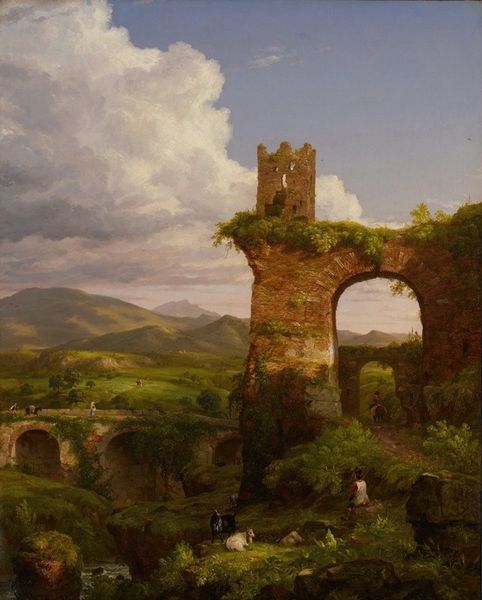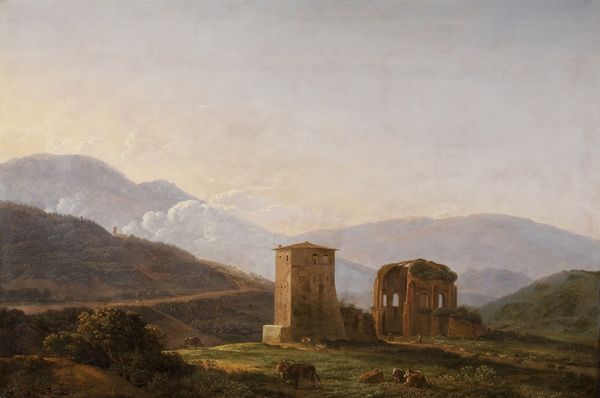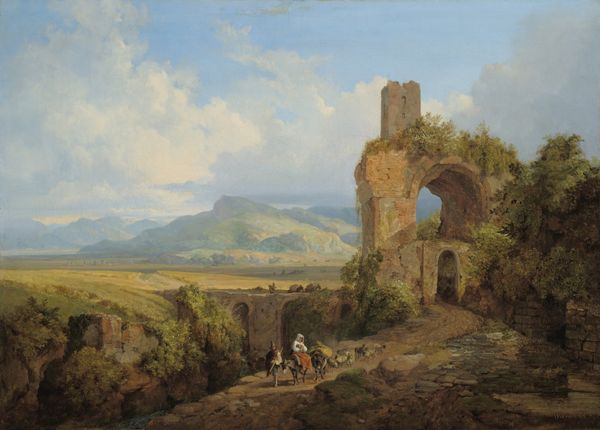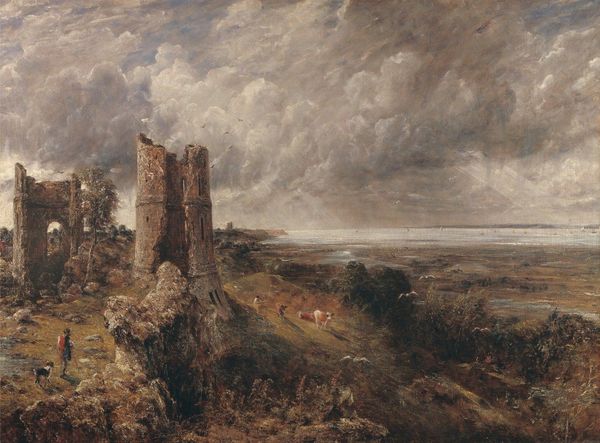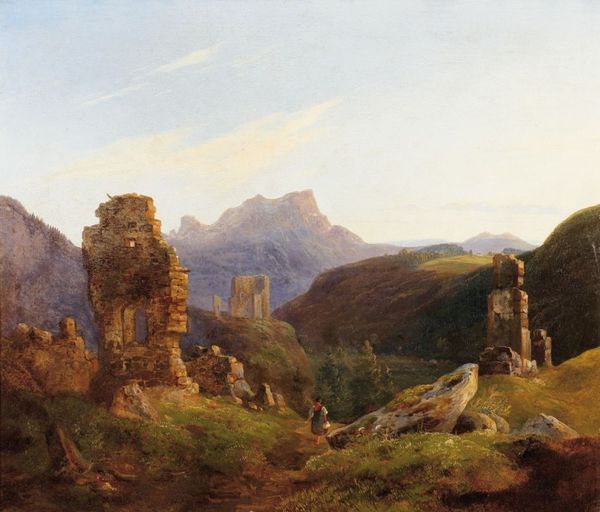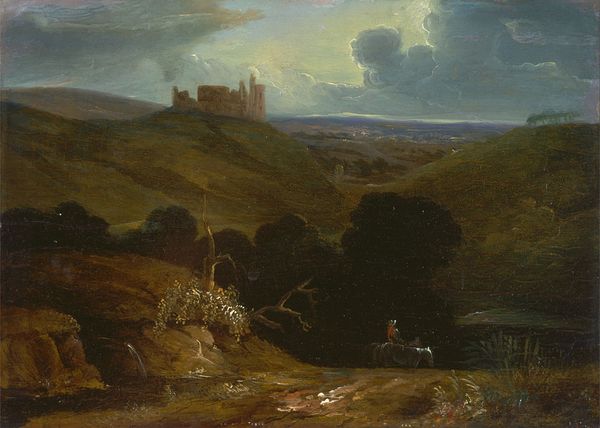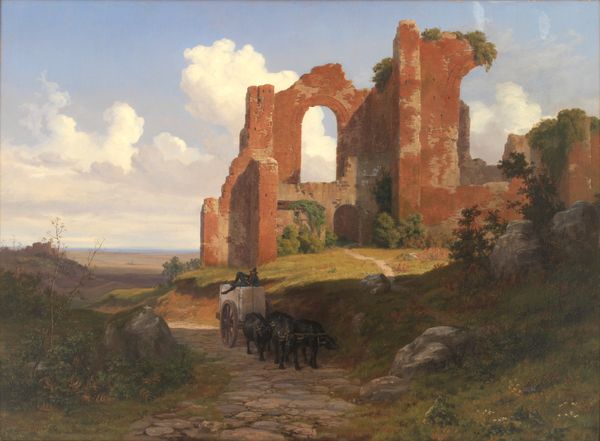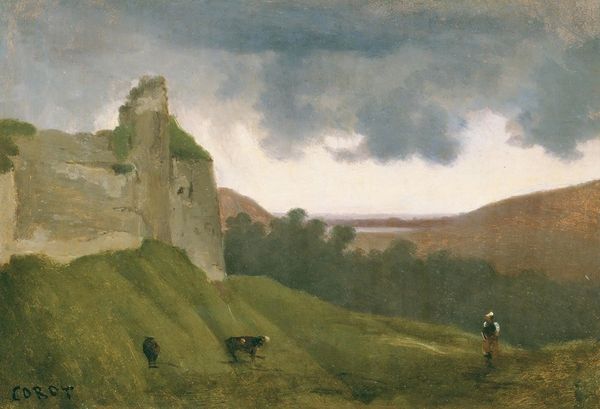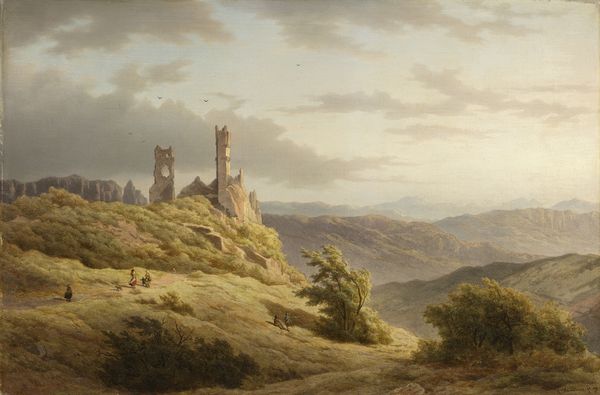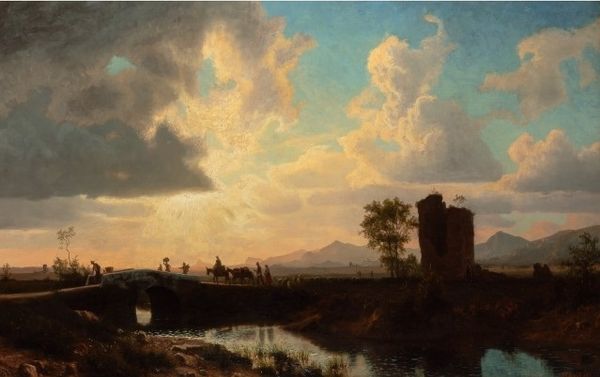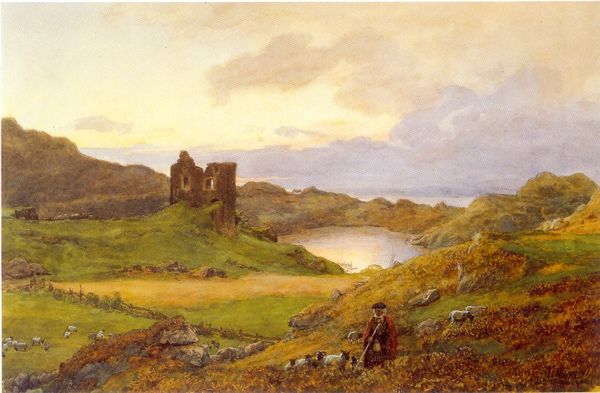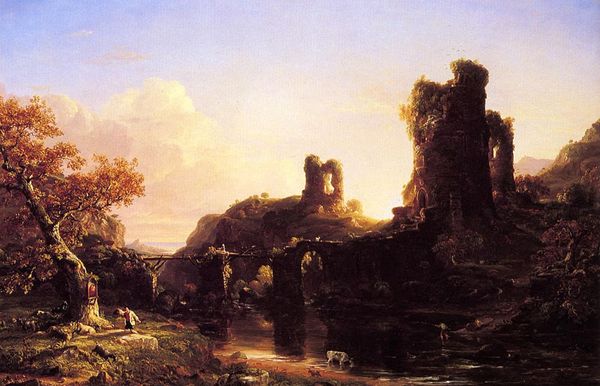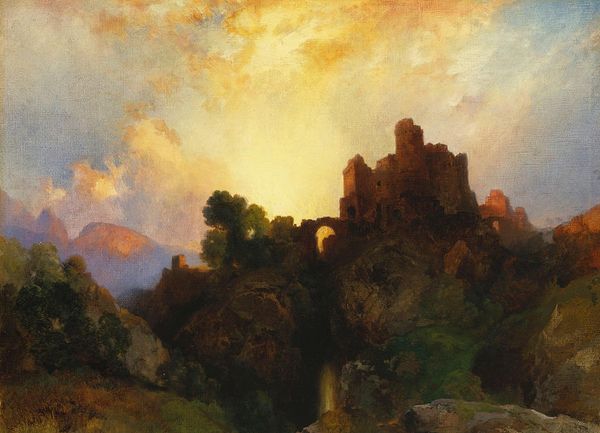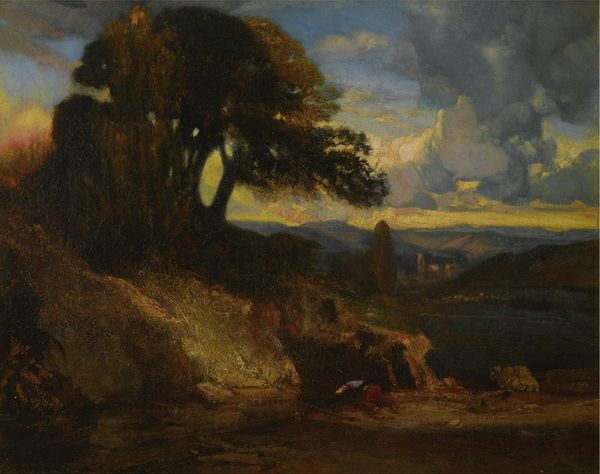
oil-paint
#
oil-paint
#
landscape
#
classical-realism
#
oil painting
#
romanticism
#
cityscape
#
history-painting
#
italian-renaissance
Copyright: Public Domain: Artvee
Curator: Looking at this canvas, one immediately feels the weight of history. Editor: It’s melancholic, certainly. A sense of loss and ruin hangs in the air despite the brightness of the landscape. Curator: Exactly. This oil painting is "A View near Tivoli," created by Thomas Cole in 1832. He presents us with a quintessential Romantic vision, placing crumbling Roman architecture against a sublime, almost overwhelming, natural backdrop. Editor: Those ruins on the right really capture your attention, don’t they? Swallowed by vegetation. Nature reclaiming the man-made, almost mocking its ambition. Do you see it reflecting on cycles of empires, perhaps? Curator: I do. It also reminds me of the idea of "Et in Arcadia ego." Even in this idyllic, seemingly untouched setting, death and decay are present, subtly influencing the overall mood. Note how the lone figures, so small in the composition, seem almost dwarfed by their surroundings. Editor: There's something distinctly American in the gaze here, too. Cole positions himself as almost an outsider, witnessing Europe's past glories and its inevitable decline. It would have resonated powerfully with a young nation eager to establish its own cultural identity. It challenges the historical dominance in the old continent, and seeks legitimacy as an independent and capable nation on the American one. Curator: It’s true. This vista of Tivoli would evoke certain romantic images for viewers acquainted with classical art and history. Cole appropriates the image for his own artistic purposes, presenting an image both nostalgic and forward-looking. Editor: So, on one hand we have an artist captivated by Italy's legacy, but on the other we see the confident declaration of an emerging artistic and cultural power back in America. It's a beautiful, albeit slightly somber, assertion. Curator: Well said, indeed. "A View near Tivoli" offers both an elegy for the past and perhaps also heralds something entirely new and yet unknown on the horizon.
Comments
No comments
Be the first to comment and join the conversation on the ultimate creative platform.
